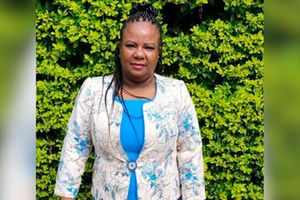
Psychology graduates Lucy Muhoro, Hillary Biketi, Maureen Mwenja and Yvonne Mutuku.
Despite Kenya’s growing mental health crisis, a stark paradox persists. Many psychology graduates are finding themselves unable to secure employment yet an alarming number of Kenyans face mental health challenges.
There are about 9,000 counsellors and psychologists registered under the Kenya Counselling and Psychological Association to serve an estimated 25 percent of the population wrestling with mental health issues.
“Therapists are like rare, expensive jewels – out of reach for most. Yet those who could make mental health care accessible are stuck on the side-lines, their skills gathering dust,” says a psychology graduate who has been tarmacking for the last eight years.
The numbers tell a complex story. Every year, more and more students enrol and graduate from Social and Behavioural Sciences faculties but lack jobs yet more Kenyans than ever need psychological support. Stress. Trauma. Economic pressure. But the bridge between need and support remains unbuilt. Graduates ask: How can a society so desperately need what we're trained to provide, yet keep us from providing it?
Psychology graduates share their tribulations on the job market.
I opened a counselling centre in Thika, but I couldn’t sustain it.
Maureen Mwenja, 35, studied counselling psychology, but now works as a sociologist
“When I was young, I dreamed of joining a medical field, but my grades didn’t allow for direct entry. Shortly after high school, I lost my mother. It was a tough time, and I was recommended to see a counsellor to help me through my grief. A friend suggested I study counselling instead of just seeking it, and that’s how I slowly gained interest. I studied a degree in counselling psychology at Mount Kenya University. I graduated with a second-class upper division in 2011. Through my studies, I found healing, and I realised I wanted to help others overcome their struggles.
In 2013, I opened a counselling centre in Thika, but I couldn’t sustain it. Many cases, especially those involving suicide, required urgent attention, and I couldn’t turn people away, even if they couldn’t pay. Over time, I realised that free services offered by churches and organisations made it hard for private counsellors to thrive. This lack of financial sustainability forced me to close my centre.
Job opportunities were also limited. Most organisations employed only one counsellor, while other roles like project officers were far more available. Many counselling jobs came with stipends as they were tied to volunteer work, particularly in HIV testing. Psychological counselling wasn’t seen as essential. Often, people assumed anyone could provide counselling. This perception undervalued the profession and made it difficult to grow.
Over time, I found myself slowly drifting away from my dream career because I tried applying for several opportunities, especially in government institutions, which never bore fruit. I got suggestions to shift to sociology. I chose to stick with psychology because I genuinely love it. Even though society doesn’t take mental health as seriously as physical health, I know the importance of psychologists. Mental health affects every aspect of life, from drug abuse and physical health to broken families and careers. At the moment, I am studying for my Master’s degree at Mount Kenya University.
Eventually, I got an opportunity to work in the physical and urban development field as a sociologist. It wasn't more of a choice but an opportunity that came my way and I grew to love it over time. I started from the entry point of a project assistant, where I began as a volunteer in 2016.
I believe psychologists, like medics, are essential service providers. Without them, mental health issues would continue to harm individuals and communities. I hope that the government will recognise this and support more counsellors, especially in public service. Opportunities are scarce, but I remain optimistic. I keep my licences updated, attend seminars, and stay informed about developments in my field.”
Employers tend to hire fresh graduates rather than renew contracts
Hillary Biketi, 32, a clinical psychology graduate is doing poultry farming
“My journey into psychology began in 2014 when my stepbrother passed away due to alcohol addiction. His struggle with alcohol and drugs deeply affected me, and I wanted to help people with similar challenges. Someone once told me that while it’s good to sympathise with others, it’s even better to empathise and have the skills to help them. That advice inspired me to study clinical psychology, with a focus on chemical dependence.
I joined Outspan Medical College in Nyeri County, where I studied for three and a half years, graduating in 2017. At the time, psychology wasn’t widely appreciated in Kenya. Mental health issues were often overlooked, with many believing that only physical problems mattered. However, this is changing, and people are beginning to see the importance of mental health.
In 2019, I secured a job at a rehabilitation centre, where I worked until 2022. These jobs were contract-based, making long-term employment challenging. Employers tend to hire fresh graduates rather than renew contracts, as they associate contract renewal with higher salary demands. This makes job security in this field difficult.
I then shifted to poultry farming later that year. It has not been easy since farming has high burnout, little income, and at times client resistance. Regardless it keeps me busy and also helps with my upkeep.
Mental health issues like depression and anxiety are big problems today, and society needs more awareness and support for these conditions. Many rehabilitation centres focus on profits rather than providing genuine help. I dream of starting my own centre someday to support those struggling with mental health issues.
Currently, I volunteer to help people in my community, though the nearby hospitals lack psychiatric wings.”
I’m working toward opening my own therapy clinic
Yvonne Wangari, 27, is a mental health psychologist
“My interest in psychology started in high school after a fire outbreak. The event left me scarred and I was having a hard time in school from the traumatic event. I became hesitant to go back to school and my parents had to seek therapy for me. I expected an older person, but my psychologist was a young man in his 20s. He could read my mind even when I tried to hide things, and that fascinated me. That’s when I decided I wanted to help people in the same way.
I went to Kiambu Institute of Science and Technology for my studies. I graduated in 2022. Gaining experience was challenging because people prefer psychologists with more practical knowledge. Luckily, I started volunteering for an international NGO while I was still studying. I felt grateful for the opportunity because finding job opportunities is hard, especially for young people.
In this field, many older people stay employed even after retirement, while graduates struggle to find jobs. There’s too much focus on white-collar jobs. I think it’s important to learn new skills and stay open-minded.
In psychology, there are options like podcasts, online consultations, working in schools, or specialising in areas like substance abuse. It's about finding a niche and understanding your clients. People should pursue something they enjoy, not just for the money, because that leads to burnout.
Mental health needs more attention in Kenya and Africa. It’s not just a “Western” issue. We should embrace therapy and have psychologists in workplaces to promote mental health. To succeed as a psychologist, we need emotional intelligence, empathy, and critical thinking.
Networking is vital for getting clients, and I rely on social events and referrals.
Employers should give opportunities to recent graduates and those starting. Everyone deserves a chance to prove themselves.
I’m working toward opening my therapy clinic or starting an NGO for mental health and wellness. I’ve partnered with a friend to run Zalika CBO which focuses on mental health and teenage pregnancy. I’m also networking and learning from mentors. I aim to work remotely or start my own business to escape the 9-to-5 grind.”
I ended up working as a waitress since it was the easily available hustle
Lucy Mohoro, 38, is studying a Bachelor's degree in Education Science after graduating with a Counselling Psychology degree.
“I went to Kenyatta University, where I studied Counselling Psychology. I joined in 2009 and graduated in 2013. I was passionate about psychology and thought it was a marketable course. I believed there was a shortage of counsellors, so finding a job would be easy. I also wanted to help people. However, I later found that psychology careers weren’t as good as they seemed marketwise. Even though I love psychology, the job opportunities are very limited.
After graduation, I tried looking for work in my field of study but it was a dead end. I ended up working as a waitress since it was the easily available hustle.
The only other available options were volunteer positions which I could not settle for. Later on through a connection with friends, I got an opportunity at a rehabilitation centre for two years. It wasn’t a stable job, and sometimes it was dangerous.
Clients would escape, and once, they even burned down the facility, leaving us jobless. Some of my former classmates in psychology have moved to different careers because the opportunities in psychology are so few. It’s not that psychology isn’t needed, it’s just that the government hasn’t given it enough attention.
I wasn’t able to get a permanent job in psychology, so I decided to go back to school and try another career. Right now, I’m focusing on education since it’s easier to get a teaching than a psychology job. At one point, I even worked as a teacher while practising as a psychologist. I’m now doing education science. I hope to become a full-time science teacher and I will still use my psychology skills.
Some areas of psychology, like addiction counselling, are in demand, but those jobs have challenges. While working in rehab, I found that the working conditions were very poor. Despite having a degree and additional certification in addiction, I was paid very little and had to stay at the facility under tough conditions. The organisations I worked for didn’t offer support for therapists, like counselling sessions for burnout. Sometimes, I had to work on weekends without proper compensation. It was frustrating. If someone wants to pursue psychology today, they should think carefully.
Age is another challenge in psychology careers. When you’re young, people don’t trust you as a professional. They prefer older therapists, making it difficult for young psychologists to find jobs.”







